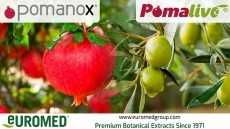PLT hires rabbi for kosher policosanol evaluation
growing demand from nutraceutical manufacturers for these
ingredients.
"More and more we are seeing a requirement from the nutrition industry for kosher certification for functional foods," PL Thomas business manager Scott Rosenbush told NutraIngredients-USA.com.
According to Star-K Kosher Certification, the US kosher market has been growing at an annual rate of 15 percent in recent several years and consumers spend approximately $165b a year on kosher products. Of these consumers, it is estimated approximately 45 percent are Jewish and 20 percent are Muslim.
Policosanol is an ingredient form of aliphatic fatty alcohols - octacosanol being the largest constituent of these - used for cardiovascular health support applications. They are waxy, mostly linear C20 to C34 alcohols, and can be extracted from a range of plant sources including sugar cane (the main source of marketed policosanol), rice bran, green vegetables, wheat bran and saw palmetto, as well as beeswax.
The compound, which originally became popular in Cuba, is thought to act on cholesterol metabolism in the liver.
The New Jersey-based ingredient supplier contracted a rabbi from Star-K Kosher Certification to travel to the Chinese plant where its policosanol is produced. The rabbi audited Wuyi Zhen Wei Biological Science & Technology Company to pareve Kosher standards, said Rosenbush.
"Pareve" (pronounced 'parv') refers to products not containing dairy ingredients. But kosher certification also regulates how and where a product is made, the extent to which a factory is clean, and what other products are made there.
Kosher products are also of interest to Muslims, Seventh Day Adventists, vegetarians, and people with food allergies. The labeling system clearly identifies whether it contains dairy or meat products, which appeals to vegetarian and food-allergic consumers. Many people are also drawn to kosher products because they believe they are produced in cleaner environments.










